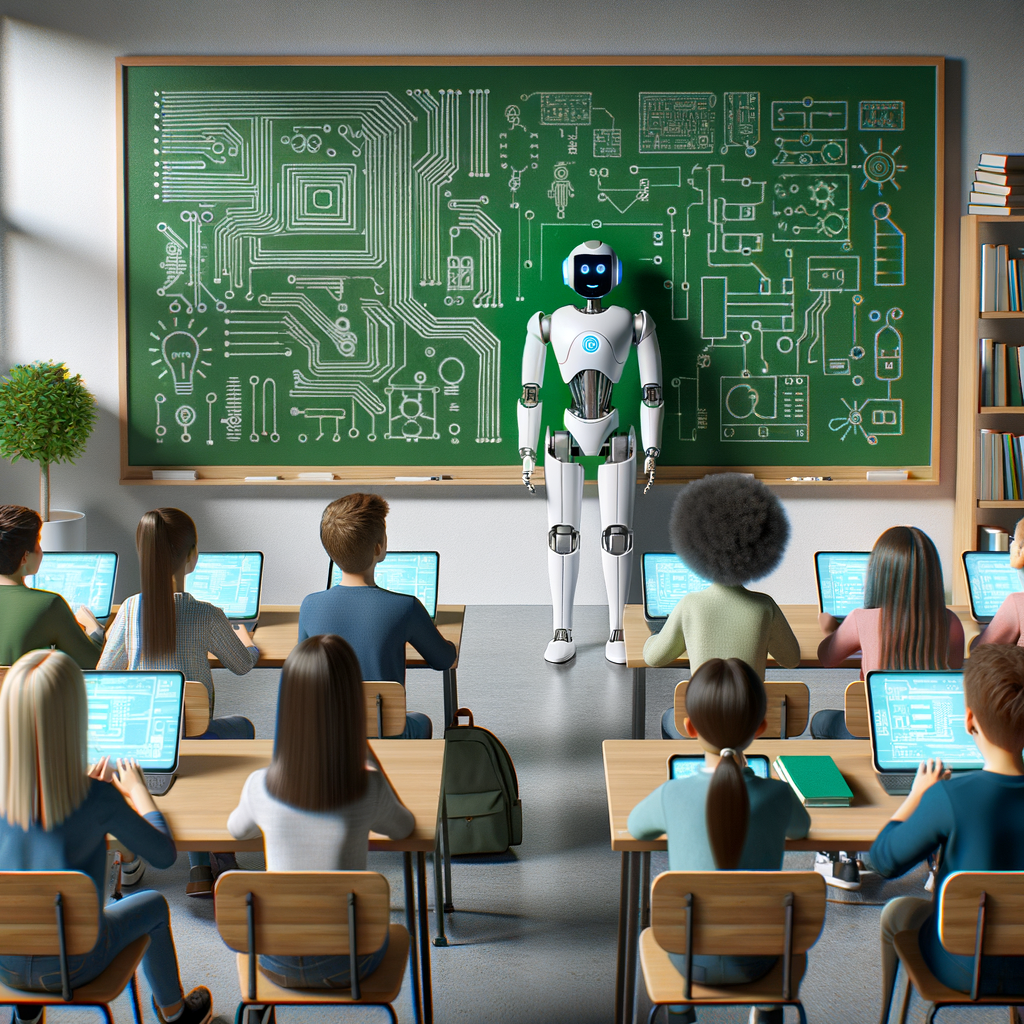
Decoding the Future: AI's Role in Revolutionizing Education
Explore how artificial intelligence is transforming the educational landscape. From personalized learning experiences to AI-driven administrative efficiencies, this blog post delves into the groundbreaking changes AI is ushering into schools and universities worldwide.
Decoding the Future: AI's Role in Revolutionizing Education
Artificial Intelligence (AI) is redefining industries across the globe, and education is no exception. As AI technologies evolve, their implementation in educational contexts is leading to innovative ways of learning, teaching, and administering educational institutions. In this article, we explore the multifaceted impact of AI on education, highlighting its benefits and addressing potential challenges.
1. Introduction to AI in Education
Education systems worldwide are recognizing the importance of integrating AI-driven solutions. These systems are finding ways to personalize the learning experience, streamline administrative processes, and equip students with skills relevant for future careers. AI in education is about more than just providing information—it's about creating environments where students can thrive.
1.1 The Need for AI in Modern Education
Globalization and technological advancement demand a more responsive and adaptive education system. By 2030, it is expected that education will be vastly different due to the influence of AI, offering more personalized and efficient learning.
2. Personalizing the Learning Journey
AI has the ability to tailor educational content to fit individual learning styles and paces, thus making personalized learning a tangible reality.
2.1 Adaptive Learning Platforms
Adaptive learning platforms powered by AI analyze a student’s strengths and weaknesses to adjust educational materials accordingly. This ensures a student’s unique needs are met, fostering a better understanding and retention of information.
2.2 AI Tutors and Assistants
AI-powered tutors are available anytime and can offer immediate feedback, helping students address challenges as they arise. Unlike traditional tutoring, AI tutors provide a high level of personalization and are accessible to more students.
3. Administrative Efficiency and Automation
Beyond personalizing the learning experience, AI also enhances administrative efficiency.
3.1 Automating Routine Tasks
AI can automate a variety of tasks, from grading exams to scheduling classes, thus freeing up educators to focus more on teaching and mentoring students.
3.2 Efficient Resource Management
AI is useful in managing resources of educational institutions more efficiently, analyzing data to optimize everything from energy consumption to classroom assignments and library systems.
4. Preparing Students for the Future
Equipping students with the knowledge and skills needed for tomorrow's workforce is essential.
4.1 AI in Curriculum Design
AI helps in designing curriculums that are aligned with future industry needs. By identifying emerging trends and skills gaps, AI can aid in curriculum development that stays relevant.
4.2 Fostering Digital Literacy
AI encourages students to develop digital literacy skills by integrating technology into everyday learning experiences. This fosters skills that are crucial for future innovation and problem-solving.
5. Challenges and Considerations
While AI in education holds great promise, there are challenges that need to be addressed.
5.1 Data Privacy and Ethics
As AI systems manage more student data, maintaining privacy and ensuring ethical use is paramount.
5.2 The Digital Divide
Ensuring equitable access to AI-powered educational tools across different socioeconomic groups is crucial. Bridging this digital divide is necessary to prevent widening educational gaps.
6. Conclusion
AI is set to revolutionize education by providing personalized learning experiences and improving administrative efficiency. While challenges exist, the potential benefits of AI in education are vast and transformative. By embracing AI, educational institutions can ensure they are preparing students for a future that is unpredictable but full of potential.
AI’s integration into education signifies a new era of limitless possibilities, where each student receives a tailored and enhanced learning experience. As we move forward, the collaboration between educators and AI technology will be pivotal in shaping the future of education.